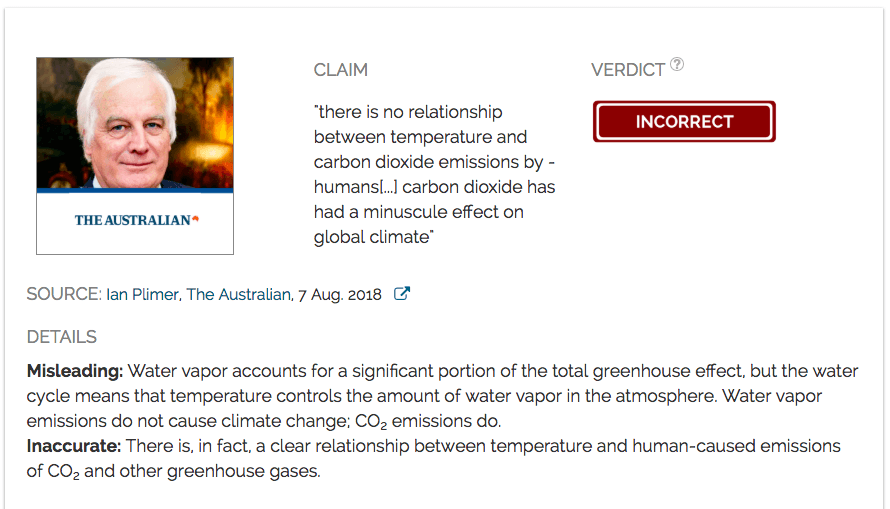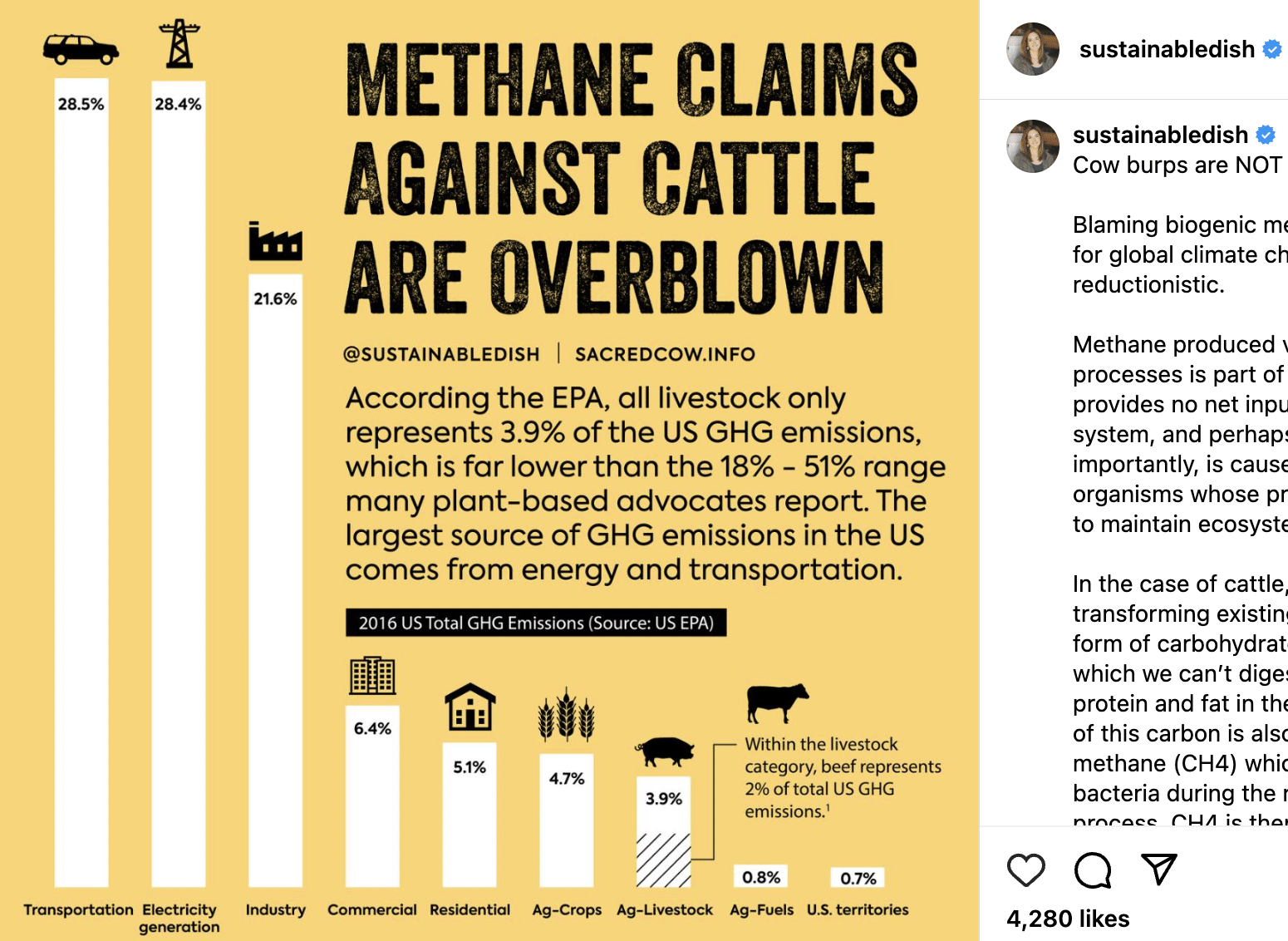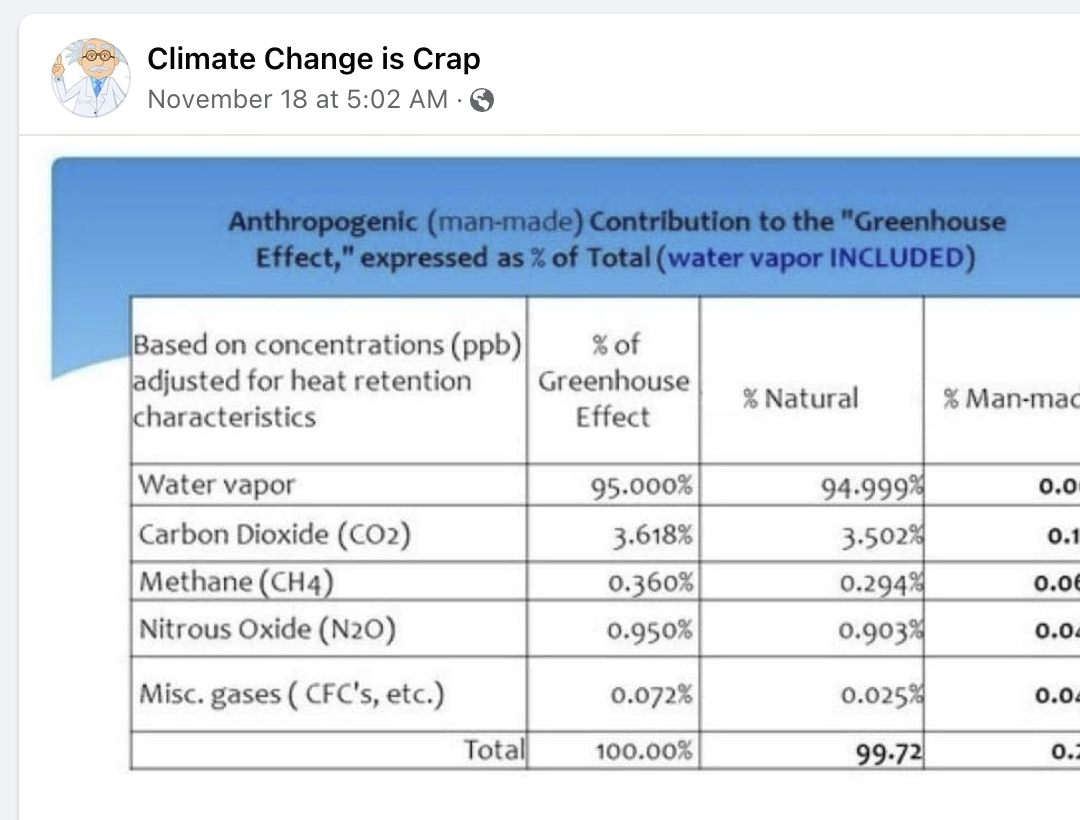- Climate
Ian Plimer wrongly claims that carbon dioxide emissions do not cause climate change
Key takeaway
While CO2 constitutes a small percentage of the gases in the atmosphere, it is a critically important "knob" controlling Earth's climate. When the concentration of CO2 increases, more outgoing heat energy is absorbed, raising surface temperatures.
Reviewed content

Verdict:
Claim:
there is no relationship between temperature and carbon dioxide emissions by humans[...] carbon dioxide has had a minuscule effect on global climate
Verdict detail
Misleading: Water vapor accounts for a significant portion of the total greenhouse effect, but the water cycle means that temperature controls the amount of water vapor in the atmosphere. Water vapor emissions do not cause climate change; CO2 emissions do.
Inaccurate: There is, in fact, a clear relationship between temperature and human-caused emissions of CO2 and other greenhouse gases.
Full Claim
Even in our own lifetimes, there is no relationship between temperature and carbon dioxide emissions by humans, yet there is a very close relationship between solar activity and temperature. <br />Since the beginning of time, water vapour has been the main greenhouse gas and carbon dioxide has had a minuscule effect on global climate.<br /> Carbon dioxide is a trace gas in the atmosphere. We are expected to believe that emission of traces of a trace gas into the atmosphere is a major planetary driving force.

Research Associate, Colorado State University/NASA JPL
It’s expected that cumulative human emissions and temperature will correlate1.
They do. Since 1970 the correlation is extremely strong: almost 90% of all temperature change correlates with human emissions. About 0.2% correlates with solar activity, and even that is nonsense because temperatures went up while we measured the Sun getting cooler.
This [claim] is also nonsense because carbon dioxide heating has been directly measured. Satellite data was reported in 20012. And surface data in 2015.
The extra heating we’ve caused through carbon dioxide3 is enough to charge more than 700,000 DeLorean’s flux capacitors every second. Or blowing up about 10 Trinity test nukes every second.
- 1-Zickfeld et al (2016) On the proportionality between global temperature change and cumulative CO2 emissions during periods of net negative CO2 emissions, Environmental Research Letters
- 2-Harries et al (2001) Increases in greenhouse forcing inferred from the outgoing longwave radiation spectra of the Earth in 1970 and 1997, Nature
- 3-Feldman et al (2015) Observational determination of surface radiative forcing by CO2 from 2000 to 2010, Nature
It is true that water vapour is a main greenhouse gas, but the amount of water vapour is also tightly related to temperatures (and should therefore be seen as an enhancing feedback, not a driver). That is, higher CO2 will increase temperatures, which will increase water vapour, which will increase temperatures… To write that “carbon dioxide has had a minuscule effect on global climate” is of course utter nonsense—see other comments.

Postdoctoral research fellow, Potsdam Institute for Climate Impact Research
This is a non-sequitur: “CO2 can’t have a large impact on climate because water vapour is Earth’s primary greenhouse gas”. The reality, of course, is that the amount of water vapour in the atmosphere is relatively stable and bound by atmospheric temperature. CO2, on the other hand, can be easily added to the atmosphere in large amounts, altering the Earth’s energy balance and climate in the process.

Scientist, University of Bonn, Germany
Naturally also small concentration can matter. Many substances are, for example, poisonous at much smaller concentrations.
What matters is the amount of CO2. That there are also inert molecules in the atmosphere does not change the radiative influence of CO2.
It is pretty amazing that Plimer states in this same article that “Over the past 30 years, planet Earth has greened due to a slight increase in atmospheric carbon dioxide.” Suddenly it is no problem that CO2 is a trace gas.



